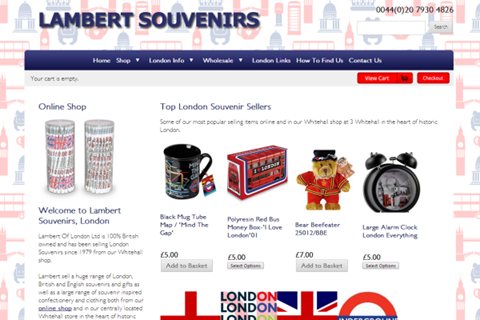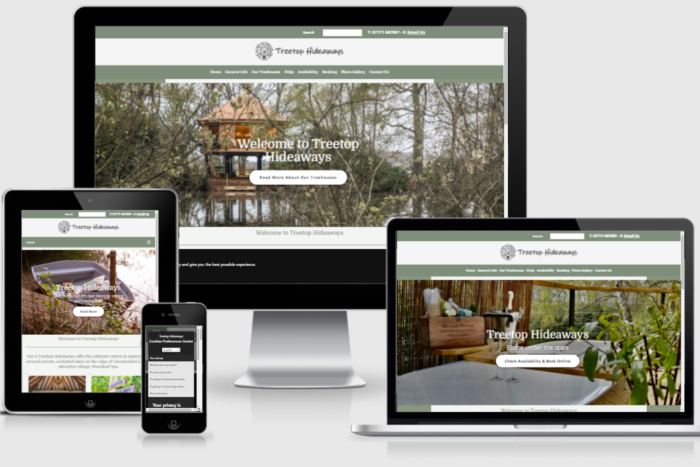Site Marketing Set Up Service
Although most websites are optimised by Google when they were first set up, Google continually amends and evolves the guidelines and algorithms they use to index and rank websites.
The main things Google currently factors in – ie what matters most – are On-Page Search Engine Optimization (the website titles, descriptions, text and other content that Google reads) and Off-Page Search Engine Optimisation (the amount of good quality backlinks to your website). The facts are that Google is responsible for over 90% of searches, so these guidelines can’t be ignored.
Google also now has a brilliant new analytics tool – Google Analytics 4 (GA4) – that provides far more in depth info on how people are actually using your website and how it is performing. It is also worth pointing out that Artificial Intelligence (AI) is starting to play an ever increasing role in all of this, and we already utilising AI related SEO tools to perform keyword research and, where necessary, make subtle changes to how your page titles, descriptions and content are optimised.
These tools enable us to understand what keywords are being used and how your competitors are being ranked. Perhaps the best way of illustrating this is to say that if you were a professional golfer today, you now have access to all sorts of statistical data about not only your own game (ie how far you hit the ball, how many fairways you hit, and how many putts you take etc), but you also have access to the exact same data about your opponents. You can see where they are better, what your strengths are – and what you need to improve. It makes sense to focus on how Google views your website, how it views your competitors, and what action we need to take in order to improve in these individual areas, especially since your competitors are doing so.
To begin with – if you haven’t done so already – we’d suggest that we set up GA4, undertake some basic surgery to optimize the website content itself, and start putting a plan in place to increase the total number of web pages that link to you, with particular emphasis on those that Google recognises as being most relevant and thus having a high domain trust score.
Whilst building backlinks is very much an ongoing task, if we spend some initial time getting the basics set up properly, your website will start to rank higher and you’ll notice a difference quite quickly. However if we spend more time on an ongoing basis over the coming months you’ll end up noticing a significant difference.
We don’t make the rules up, we just explain how best to play the game! The harder you work, the better you’ll get.
If you want to get more traffic to your website these are the things that really matter.
Setting Up GA4
Whilst raw site stats (i.e. unfiltered statistics that can include visits from bots) provide basic info on visits and other data, Google has replaced its original Google Analytics tool with a new service called GA4.
To begin with we’d suggest setting up GA4 as it provides far more in depth info on how people are actually using your website with AI-analysed insights in how your website is performing, and detects any anomalies (a drop off in traffic on a certain page for instance). Even if this isn’t important to you right now, it means you have access to the GA4 data from NOW when it does matter to you.
On Page SEO
Google reads and interprets your website’s titles, descriptions, text and numerous other factors to rank each website. Adhering to Google’s guidelines and algorithms is crucial for SEO success. We are able to undertake research to see how many times certain phrases are searched for in Google, and to optimize each individual website accordingly. We can look at competitors and research how many times they use specific keywords. In short, we can use information available to optimize your own web pages.
In simple terms, we find the right balance between how the website reads for a customer and how it reads for Google. In addition to being found easily, it is also essential that when someone finds a page on your website via Google, the title and description displayed in the search result convey accurately what that page is about, and that when they click on the result, the information on the web page itself is neatly presented, well written, up to date and tells them what they need to do next.
Whilst we keep “repeated” use of phrases to a minimum to ensure the site still reads nicely, we do now need to factor this in to improve specific keyword rankings.
NB: Google also likes websites with content that gets updated regularly. We will work with you to write short news articles on upcoming events or general articles that are relevant to your market that will help.
In short, on-page SEO means making sure your page titles, descriptions, page content and image titles/captions are written/edited for Google. This also means adding news articles so that Google has new content to index. Also, it is worth pointing out that Artificial Intelligence (AI) is starting to play an ever increasing role in all this, and we already utilising AI related SEO tools to perform keyword research and, where necessary, make subtle changes to how your page titles, descriptions and content are optimised to ensure the website is in line with Google’s latest recommendations.
Off Page SEO – Building more backlinks to your site.
Off-Page SEO (backlinks) are the total number of web pages that link to you, combined with those that Google recognises as being most relevant and having a high domain trust score. This is very much an ongoing task but increasing the number of backlinks will contribute to a higher ranking.
In simple terms, backlinks are links from other websites to yours. The amount of links to your website carries weight with Google, especially if they come from websites with a high domain trust score (meaning a higher chance of ranking and ranking highly). High domain score websites include high circulation news/magazine type sites, websites associated with your market, and other old, well established sites.
There are several ways we do this:
1 ). We scan links from other websites to your competitor websites and seeing if any links are broken. We then contact the site owner to make them aware and suggest they replace that broken link with one that points to a page on your website.
2 ). We write blog articles that focus on upcoming events or general articles that are relevant to you or your market. These articles are sent to various websites as articles of interest as part of our backlinks service.
3 ). There are an increasing number of websites who will provide a link usually for a fee (which can be negotiated), and we already have a database of these websites. We’d have to undertake some additional research before we come back to you with firm extra costs for these services, as it involves additional manual hours too.
Getting Started
This section explains in great detail everything that you need to know about getting started. Although there is nothing here that you can’t learn to do yourself, you really would need to spend a lot of time learning about it and it does take a lot of time to implement it.
If you’d like us to handle all this for you, our specialist Site Marketing Set Up Service covers all the key fundamentals outlined in this section so that everything his set up properly and professionally.
We charge from as little as £750 plus VAT to set everything up for you, plus whatever daily/monthly budget you might wish to spend on online advertising with Google, Facebook etc. We charge £50 plus VAT per hour for ongoing support, management and additional amends.
Useful Information On Site Marketing
We are aware that a lot of businesses simply are not doing enough to get their website ranked highly and to generate more visitors. The main reasons are that they don’t understand it, they don’t know what to do – or they don’t even know where to start.
For example, although most people have heard of the term “seo optimisation” and have a vague idea that it relates to being found via various search terms, they – quite understandably – don’t know what Google is looking for or how to set this up properly. They certainly don’t know that they can get Google to perform reports on their website – and competitors! – and use this data to maximise optimisation. We think the best thing to do is to explain everything in simple terms, and try and de-mystify the whole process as much as we can. The more informed you are the better, but that doesn’t mean you then have to become an expert yourself.
We explain how Google “works” – what it perceives as being important. We then explain how your website could be improved to rank higher and to get more visitors, along with how we do this and the timescales involved.
Once we have conducted some initial research you can then see for yourself how your website ranks at present, what needs to be done to improve it, and what benefits and results you should see within the next few months if you take this on board.
The bottom line is that Google’s guidelines and algorithms – ie the factors they use to rank your website – are continually evolving. If you are to rank higher, get more visitors and increase conversion rates, you have to start to proactively marketing your website more than at present. Everything is more competitive. More and more websites get launched. It’s harder to make sure you are noticed than before. The good news is that with the right research and action you can rank higher.
Everyone has got used to browsing for everything they want to know about online. They expect to find the sort of site they are looking for quite easily using simple keywords. They expect the results they see in Google to contain a relevant title and description, so that they know what to expect when they click on a link, and they expect the website to be well presented, up to date and to contain information that they can rely on. Google’s tools continually adapt, improve and refine how search results are delivered.
We realise that it’s very easy to get lost in technical jargon that leaves you baffled. We also realise that you – along with everyone else! – get spam type emails on an almost daily basis from people you’ve never heard of saying they can do this that and the other to boost your website. We also realise that you get individually approached by large/bespoke marketing agencies who want you to commit to a long term contract, starting with a sizeable set up fee, astronomical monthly retainers, and extra charges for ad campaigns and other services. They tend to mention all the other large clients they have but don’t go into detail about what they can actually do for YOU.
We also know that some of these large agencies will leave you scratching your head at how they can charge a huge set up fee and then large monthly retainers, combined with a minimum contract of 12 months. Yes, there are a lot of manual hours involved but our working methods are more logical. We only need a few months before you see tangible results, and have never felt comfortable strapping people into a long term contract. It seems more logical to give it a go for an initial period and then when you start to see results we can either refine, carry on or pause things. No one wants to be trapped in an unhappy marriage, and this way we can find the right balance between the action that we suggest taking, the hours we devote to it, the results you expect and the budget you have available.
We also believe it is essential to explain things in “plain English” so you understand what needs to be done – and why, what the benefits are, and what the results will be. Our intention is to focus on what really matters, and strip out as much of the irrelevant stuff as possible, whilst making sure that what needs to be done, is done. The timescales and budget involved may differ for each business we work with, but the overall objectives are the same.
The Basics of Site Marketing Explained
You can use any combination of these options to try and drive traffic to your website:
1] Optimise your pages for the search engines.
2] Run online advertising campaigns, such as Google Ads.
3] Direct mail or email.
4] Run offline advertising campaigns, such as magazines and newspapers.
5] Get listed on high circulation websites that are relevant to your industry.
6] Update your site regularly by adding well written news articles.
We believe that although most businesses require initial help with setting their site marketing up properly, from that point on they can manage their own optimisation and advertising campaigns.
Our Site Marketing Setup Service includes:
- Explaining the basics of how site marketing works so you understand what you are doing.
- Researching your competitors and performing keyword analysis to improve your rankings with Google and other search engines.
- Optimising up to 10 pages of your website for search engines using keywords in page titles, descriptions H1 headers and page content.
- Setting up a bulk mailing system (such as Mailchimp) for newsletters
- Using News and Blog articles as a means of promotion.
- Setting up a Google Account, with Google Analytics.
- Setting up a Google Adwords account and creating your first campaign and first adverts.
- Setting up social media services, such as YouTube, Twitter, Facebook etc with integration into your website.
- Initial monitoring and refinement over the first few months.


